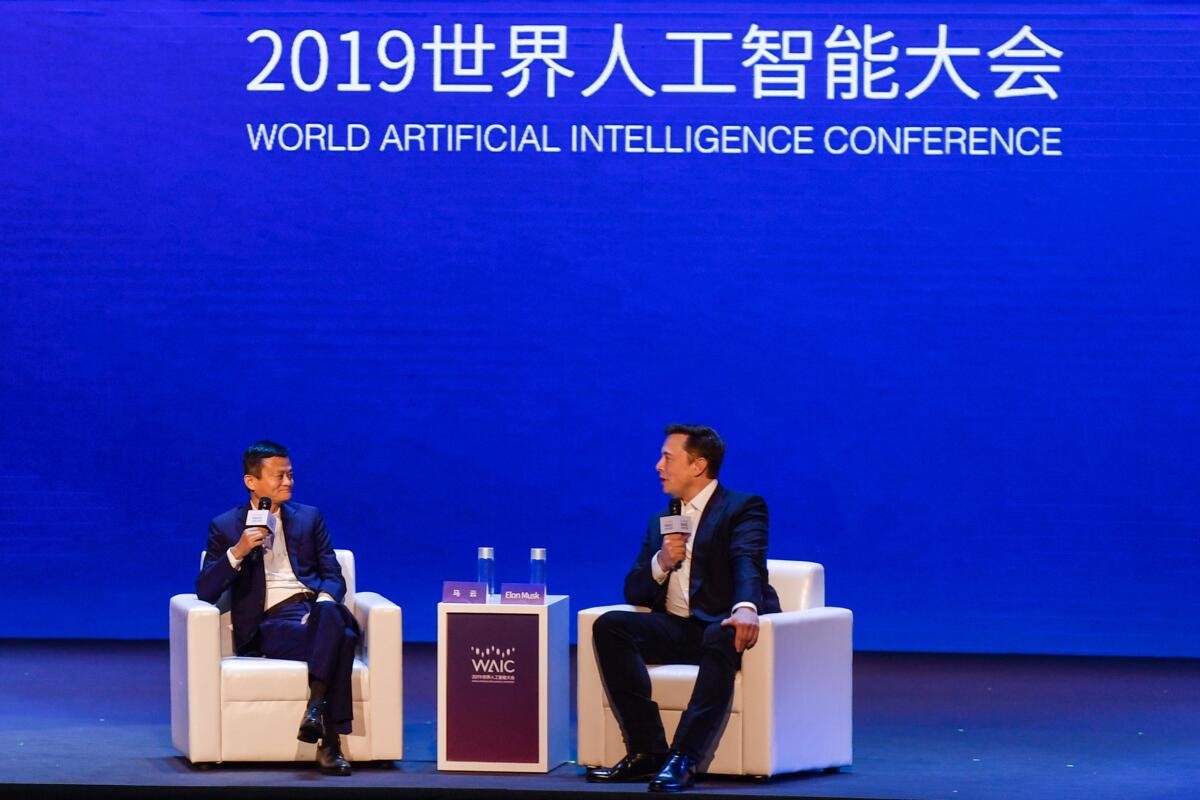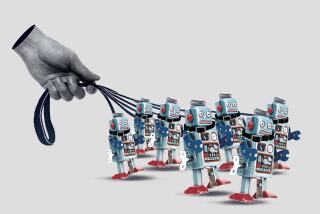A 12-hour workweek. Jack Ma thinks AI could make it the norm

- Share via
Billionaire Jack Ma, long an outspoken advocate for China’s extreme work culture, said Thursday that with the benefits of artificial intelligence, people should be able to work just 12 hours a week.
People could work as little as three days a week, four hours a day with the help of technological advances and a reform in education systems, the Alibaba Group Holding Ltd. co-founder said at the World Artificial Intelligence Conference in Shanghai. He spoke onstage with Elon Musk, the chief executive of Tesla Inc., who is building manufacturing facilities in the city.
Ma cited electricity as an example of how developments in technology could free up time for leisure. “The power of electricity is that we make people more time so that you can go to karaoke or dancing party in the evening. I think because of artificial intelligence, people will have more time enjoying being human beings.”
He went on: “For the next 10, 20 years, every human being, country, government should focus on reforming the education system, making sure our kids can find a job, a job that only requires three days a week, four hours a day. If we don’t change the education system we are in, we will all be in trouble.”
Just this year, Ma endorsed the China tech sector’s infamous 12-hours-a-day, six-days-a-week routine, so common it earned the moniker 996. In one blog post, China’s richest man this year dismissed people who expected a typical eight-hour office lifestyle, defying a growing popular backlash.
“I don’t worry about jobs,” Ma said Thursday, making an optimistic case that AI will help humans rather than just eliminate their work. “Computers only have chips, men have the heart. It’s the heart where the wisdom comes from.”
Ma said the current education system was outdated — modeled for the industrial period — and that he foresaw a day when machines could outsmart humans in areas of memory and repetitive skills. He said future education systems needed to help people become more creative. Musk agreed with Ma, touting his Neuralink project, which is trying to merge the human brain with AI.
“The way education works right now, it’s really low bandwidth, it’s extremely slow, lectures are the worst,” Musk said. “Down the road with Neuralink, you can just upload any subject instantly. It will be like the Matrix.”
More to Read
Inside the business of entertainment
The Wide Shot brings you news, analysis and insights on everything from streaming wars to production — and what it all means for the future.
You may occasionally receive promotional content from the Los Angeles Times.










